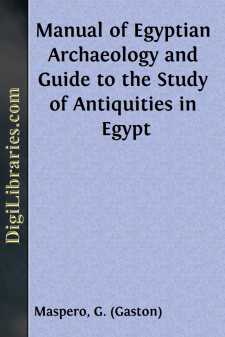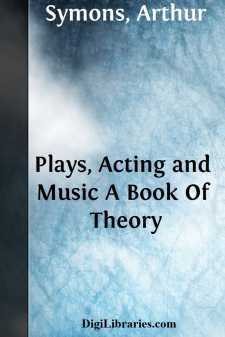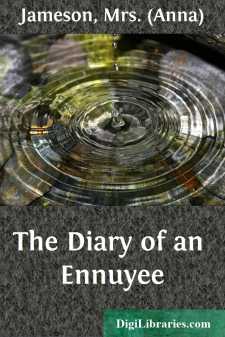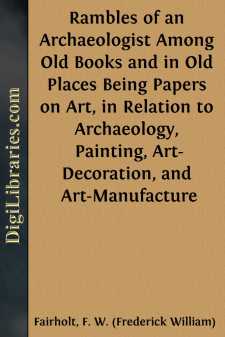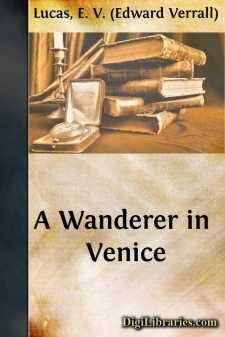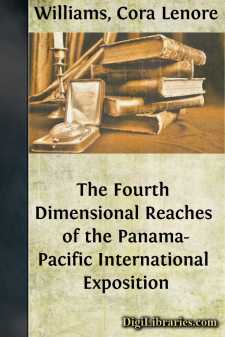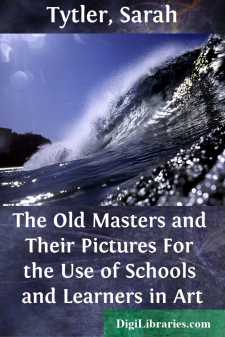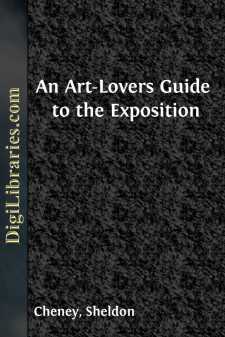Art
- African 1
- Asian 2
- Collecting 1
- Collections, Catalogs, Exhibitions 6
- Criticism 2
- European 8
- General 14
- History 11
- Middle Eastern 1
- Sculpture 4
Art Books
Sort by:
CHAPTER I. ARCHITECTURE--CIVIL AND MILITARY. Archaeologists, when visiting Egypt, have so concentrated their attention upon temples and tombs, that not one has devoted himself to a careful examination of the existing remains of private dwellings and military buildings. Few countries, nevertheless, have preserved so many relics of their ancient civil architecture. Setting aside towns of Roman or...
more...
by:
Arthur Symons
INTRODUCTION[2][3] After seeing a ballet, a farce, and the fragment of an opera performed by the marionettes at the Costanzi Theatre in Rome, I am inclined to ask myself why we require the intervention of any less perfect medium between the meaning of a piece, as the author conceived it, and that other meaning which it derives from our reception of it. The living actor, even when he condescends to...
more...
DIARY OF AN ENNUYÉE. Calais, June 21.—What young lady, travelling for the first time on the Continent, does not write a "Diary?" No sooner have we slept on the shores of France—no sooner are we seated in the gay salon at Dessin's, than we call, like Biddy Fudge, for "French pens and French ink," and forth steps from its case the morocco-bound diary, regularly ruled and paged,...
more...
CHAPTER I. Long after the extinction of the practical art-power evolved from the master-minds of Greece and Rome, though rudely shattered by the northern tribes, it failed not to enforce from them an admission of its grandeur. Loving, as all rude nations do, so much of art as goes to the adornment of life, they also felt that there was a still higher aim in the enlarged spirit of classic invention. It...
more...
CHAPTER I THE BRIDE OF THE ADRIATIC The best approach to Venice—Chioggia—A first view—Another water approach—Padua and Fusina—The railway station—A complete transformation—A Venetian guide-book—A city of a dream. I have no doubt whatever that, if the diversion can be arranged, the perfect way for the railway traveller to approach Venice for the first time is from Chioggia, in the...
more...
A Fourteenth Century Legend Friar Bacon, reading one day of the many conquests of England, bethought himself how he might keep it hereafter from the like conquests and so make himself famous to all posterity. This (after great study) he found could be no way so well done as one; which was to make a head of brass, and if he could make this head to speak (and hear it when it spoke) then might he be able...
more...
by:
Sarah Tytler
EARLY ITALIAN ART—GIOTTO, 1276-1337—ANDREA PISANO. 1280-1345—ORCAGNA, 1315-1376 GHIBERTI, 1381-1455—MASACCIO, 1402-1428 OR 1429—FRA ANGELICO, 1387-1455. A pencil and paper, a box of colours, and a scrap-book, form so often a child's favourite toys that one might expect that a very large portion of men and women would prove painters. But, as we grow in years and knowledge, the discrepancy...
more...
by:
John Ruskin
LECTURE I. THE DISCOVERY AND APPLICATION OF ART. A Lecture delivered at Manchester, July 10, 1857. 1. Among the various characteristics of the age in which we live, as compared with other ages of this not yet very experienced world, one of the most notable appears to me to be the just and wholesome contempt in which we hold poverty. I repeat, the just and wholesome contempt; though I see that some of...
more...
by:
Sheldon Cheney
Foreword This handbook is designed to furnish the information necessary for intelligent appreciation of the purely artistic features of the Exposition. It is planned first to explain the symbolism of the architecture, sculpture and painting; and second, to point out the special qualities that give each artistic unit its individual appeal. It is made for the intelligent observer who, having enjoyed the...
more...
by:
James W. Steele
THE STORY OF STEAM That which was utterly unknown to the most splendid civilizations of the past is in our time the chief power of civilization, daily engaged in making that history of a new era that is yet to be written in words. It has been demonstrated long since that men's lives are to be influenced not by theory, or belief, or argument and reason, so much as by that course of daily life which...
more...


